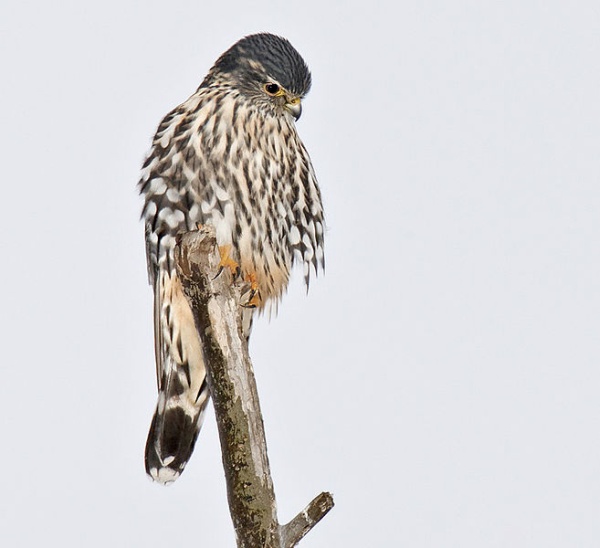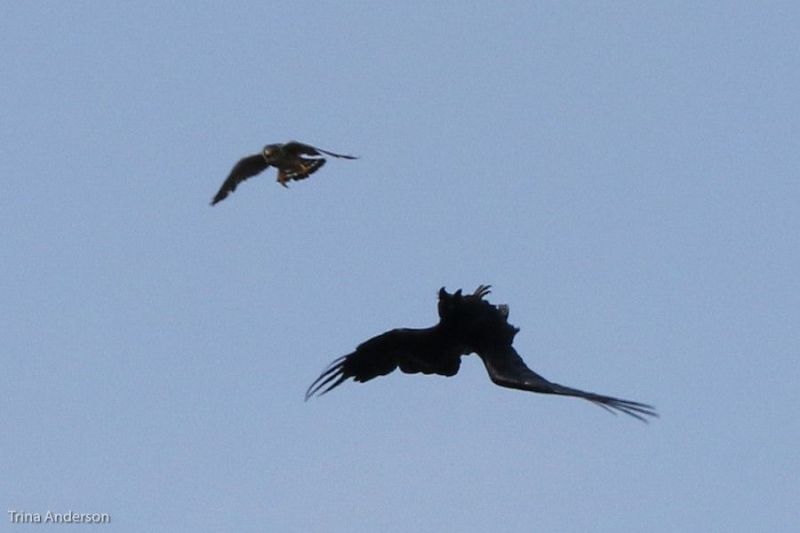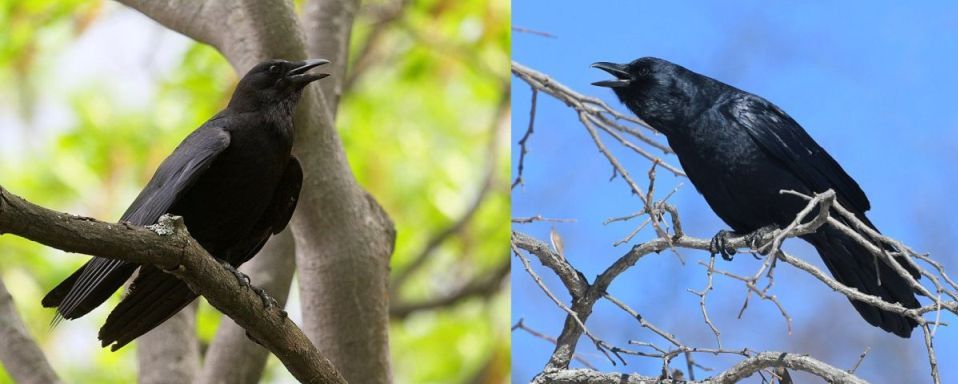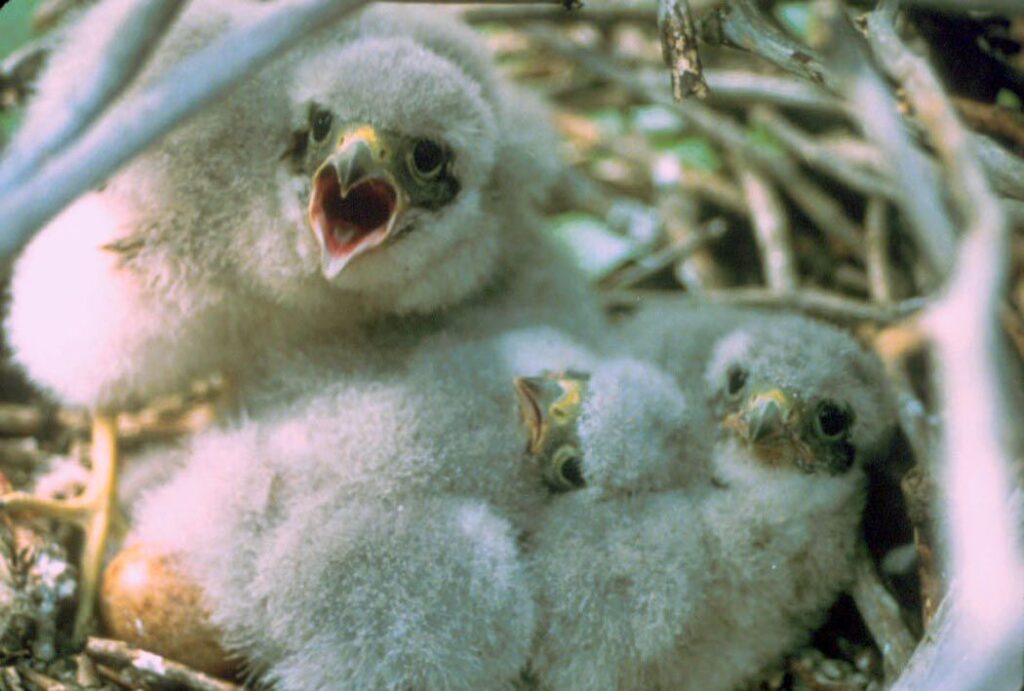
29 October 2024
Last spring during the nesting season I was so distracted by peregrines that I neglected to check on a merlins’ nest reported in Highland Park. By the time I got over there the young had fledged, the merlins were gone, and a small group of American crows were inspecting the area and commenting on what they found.
Crows are intensely interested in merlin nests because those nests may have been stolen from crows.
Merlins (Falco columbarius) never build a nest. Instead they search for crow or hawk nests, ideally in conifers, and take them over. If the target nest is unoccupied no problem but merlins are feisty and will try for an active crows’ nest by driving off the incubating female crow. If harassing her doesn’t work, they shout at her all day until another predator shows up and forces her to leave.
This often works because merlins are loud and fearless. They’ll drive away anything that irritates them including this raven (a merlin predator not a competitor).

However, in southwestern Pennsylvania there are now two species of crows — American crows (Corvus brachyrhynchos) and fish crows (Corvus ossifragus) — and it makes a difference to the merlins’ success.

A 2019 study presented at the Wilson Ornithological Society showed that if the merlin nest was successful, chances are the nest had been owned by American crows.

Behavioral interactions between nest-parasitic Merlins (Falco columbarius) and nest-building Fish Crows (Corvus ossifragus) in a new zone of overlap explains that American crows and merlins have coexisted for millennia so they have forged a working relationship and can reach detente early on. One or the other cuts their losses and nests elsewhere.
Not so with fish crows. Merlins and fish crows are new to each other so they haven’t worked out their differences and continue harassing for a much longer period. Few or none on either side have a successful nest. In the study of 25 fish crow nests in upstate New York, 40% failed due to merlin interference. The study tracked 31 merlin nests and found 66% of those made in fish crow nests did not fledge young.
Autumn and winter are good times for seeing merlins and fish crows in Pittsburgh. It would be interesting to find them interacting in spring and watch what happens.
p.s. Thank you to Don Nixon of PA Merlins for alerting me to this fascinating topic. The paper(*) is by Connor O’H. Loomis and Anne B. Clark (Binghamton University), John Confer (Ithaca College), Kevin J. McGowan (Cornell Lab of Ornithology) but it is behind a pay wall. The fish crow and merlin nesting studies continue beyond 2019 in Ithaca, NY at Cornell Lab of Ornithology.